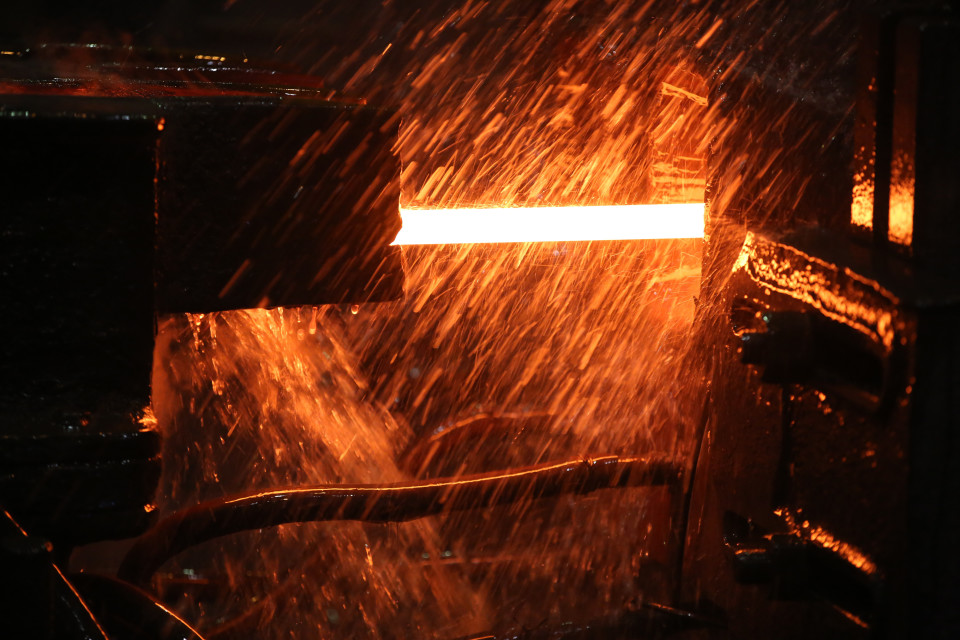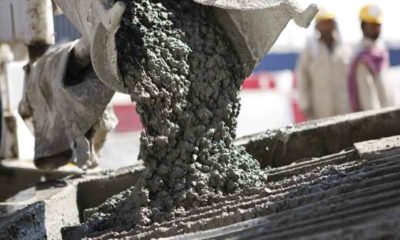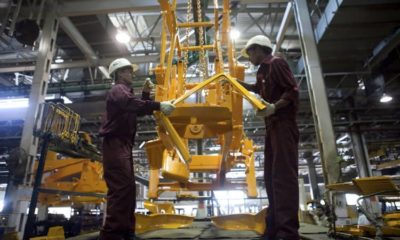- Nigeria’s Manufacturing Expands in November
Business activities in the manufacturing sector expanded for eight consecutive months in November.
According to the Purchasing Managers’ Index report published by the Central Bank of Nigeria, the manufacturing sector expanded 55.9 in November. Up from the 55.3 recorded in October and above the 50 level that separates expansion from contraction.
Out of the 16 sub-sectors surveyed, a total of 12 sub-sectors reported growth in the following order: petroleum and coal products; printing and related support activities; computer and electronic products; textile, apparel, leather and footwear; plastics and rubber products; food, beverage and tobacco products; non-metallic mineral products; chemical and pharmaceutical products; furniture and related products; paper products; cement and primary metal.
Accordingly, production level of the sector expanded 59.3 in November, making it the eighth consecutive expansion and up from the 58.4 recorded in October. Suggesting that increase in new orders due to Christmas is aiding business activities in the sector.
Also, gauge of new orders, jumped from 52.8 in October to 54.3 in November, another indication of renewed business confidence in the economy following the recession and series of adjustment made by the central bank to enhance business activities and stimulate the economy.
“At 54.3 points, the new orders index grew for the eighth consecutive month. Nine sub-sectors reported growth, three remained unchanged while four contracted in the review month,” the report stated.
Again, improved business outlook and increased new orders bolstered employment level in the sector in November, pushing employment level index to 53.7 in the month. Up from 53.1 in October. This is the seventh consecutive expansion in new job creation in the manufacturing sector.
The sector inventories index surged to 57.1 from 56.5 in October.
The surged in Nigeria’s oil production output and relative calm in the oil rich Southern part of the country is supporting business confidence as it assures investors that the Central Bank of Nigeria will be able to sustain the ongoing foreign exchange intervention for better liquidity.
Meanwhile, the Senate on Thursday postponed the second reading of 2018 budget saying the outcome of OPEC meeting is important to 2018 budget.
According to the majority leader, Ahmad Lawan the: “OPEC is meeting today (Thursday) to decide the production quota for the various members. Therefore, I believe that we need to know what the production quota for Nigeria will be so that we will take a very informed and enlightened position for the daily production for our crude.”

 Forex2 weeks ago
Forex2 weeks ago


 Naira2 weeks ago
Naira2 weeks ago
 Billionaire Watch2 weeks ago
Billionaire Watch2 weeks ago




 Naira2 weeks ago
Naira2 weeks ago




 Naira2 weeks ago
Naira2 weeks ago




 Naira4 weeks ago
Naira4 weeks ago


 Naira6 days ago
Naira6 days ago
 Banking Sector4 weeks ago
Banking Sector4 weeks ago






















